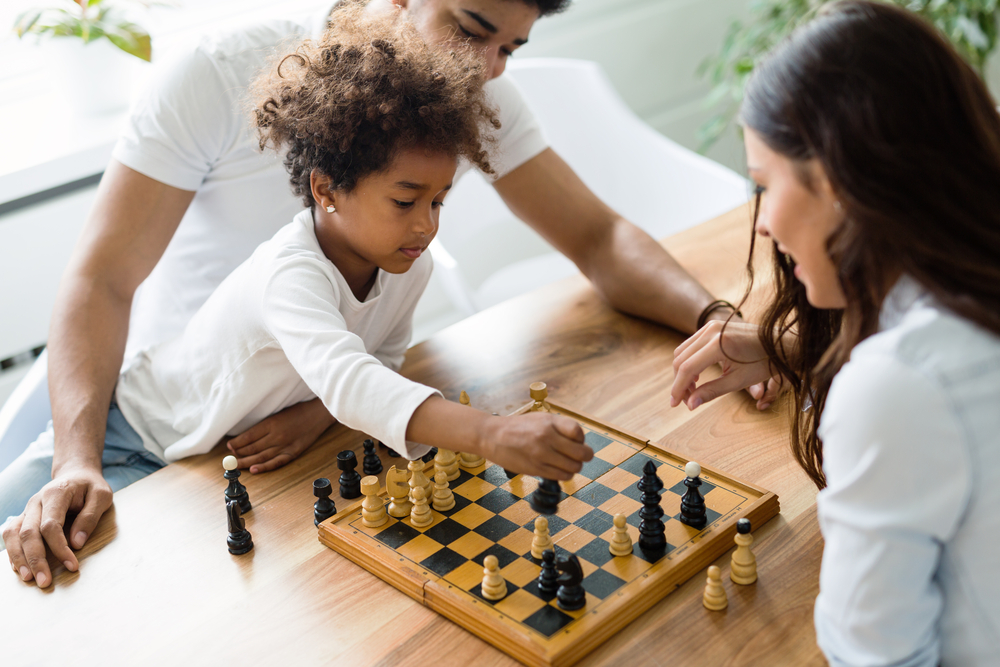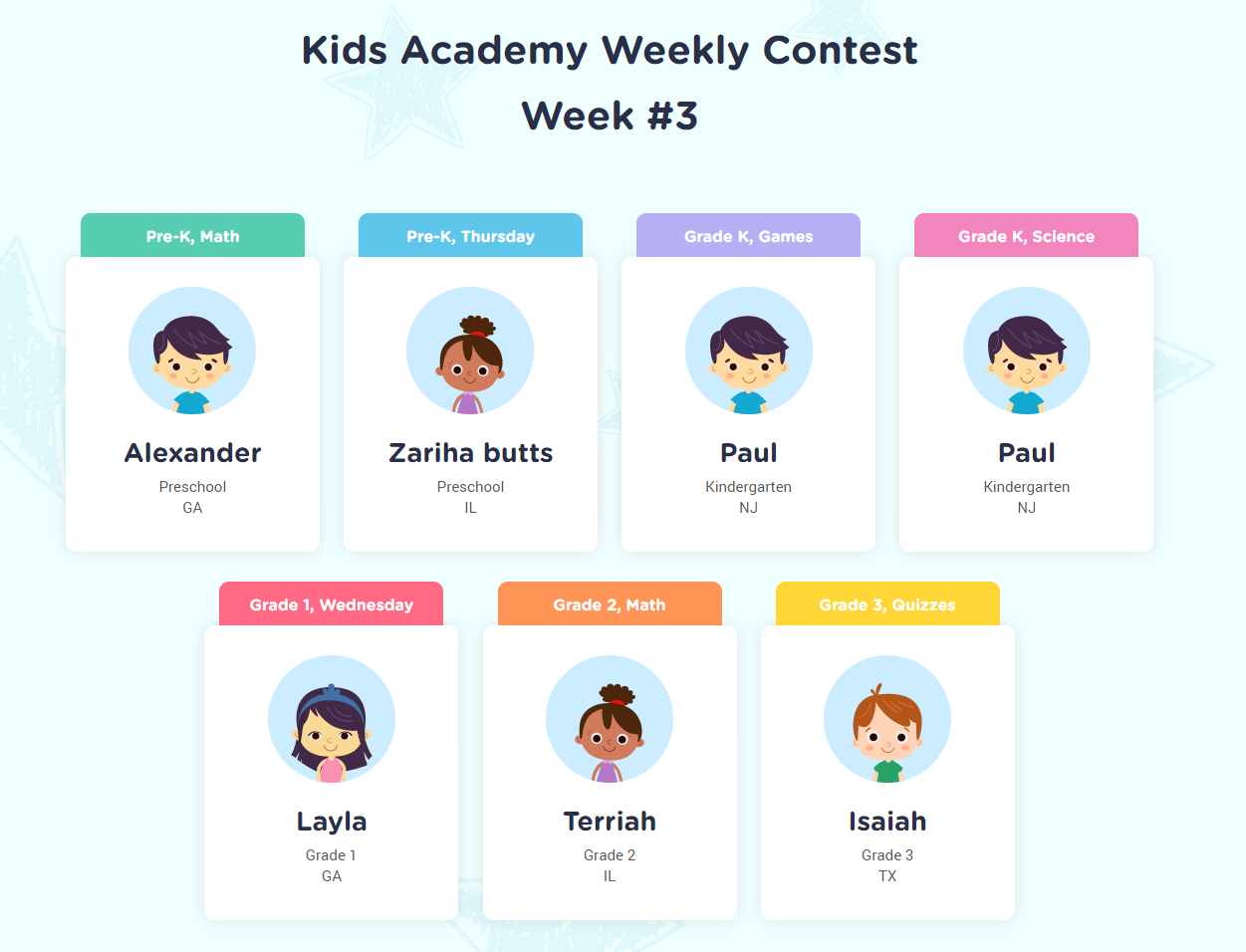Problem-Solving Skills Normal Chess Worksheets for Ages 7-8
6 filtered results
-
From - To
Unlock your child's potential with our Problem-Solving Skills Normal Chess Worksheets for Ages 7-8. Tailored for young minds, these engaging worksheets stimulate cognitive growth while teaching essential chess strategies. Perfect for beginners, the activities foster critical thinking, logical reasoning, and strategic planning. Designed by experts, they provide fun, educational challenges that captivate and inspire. Whether at home or in the classroom, these printable resources support academic development and creative problem-solving. Empower your child to think ahead and make thoughtful decisions through the enriching game of chess. Watch them excel in learning while having a great time!
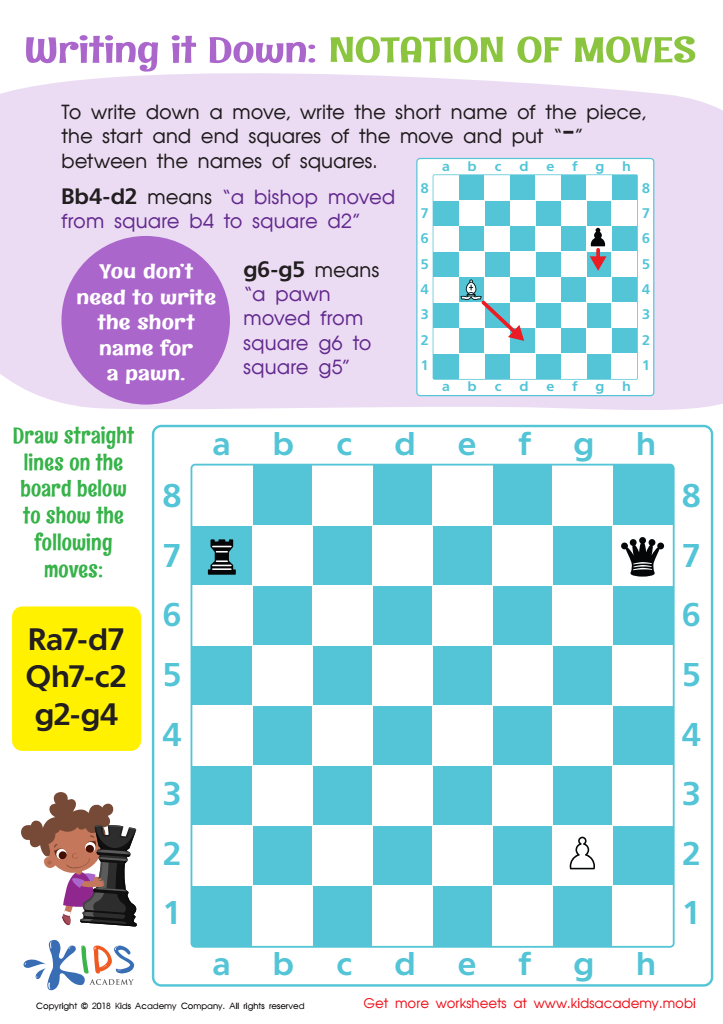

Notation of Moves Writing it Down Worksheet
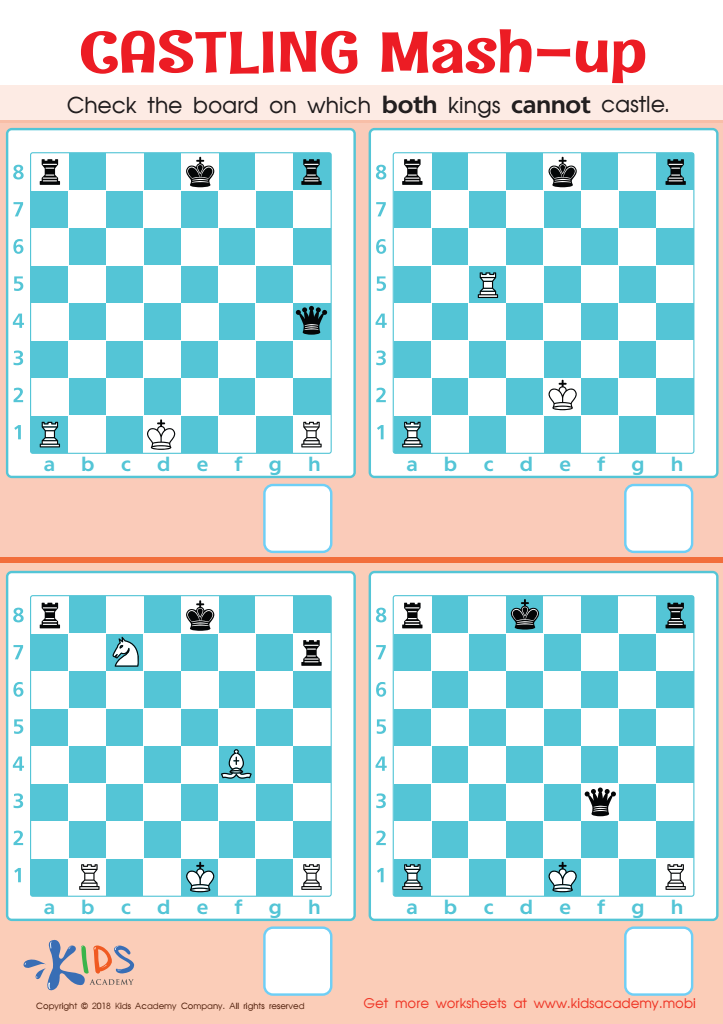

Castling Mash–up Worksheet
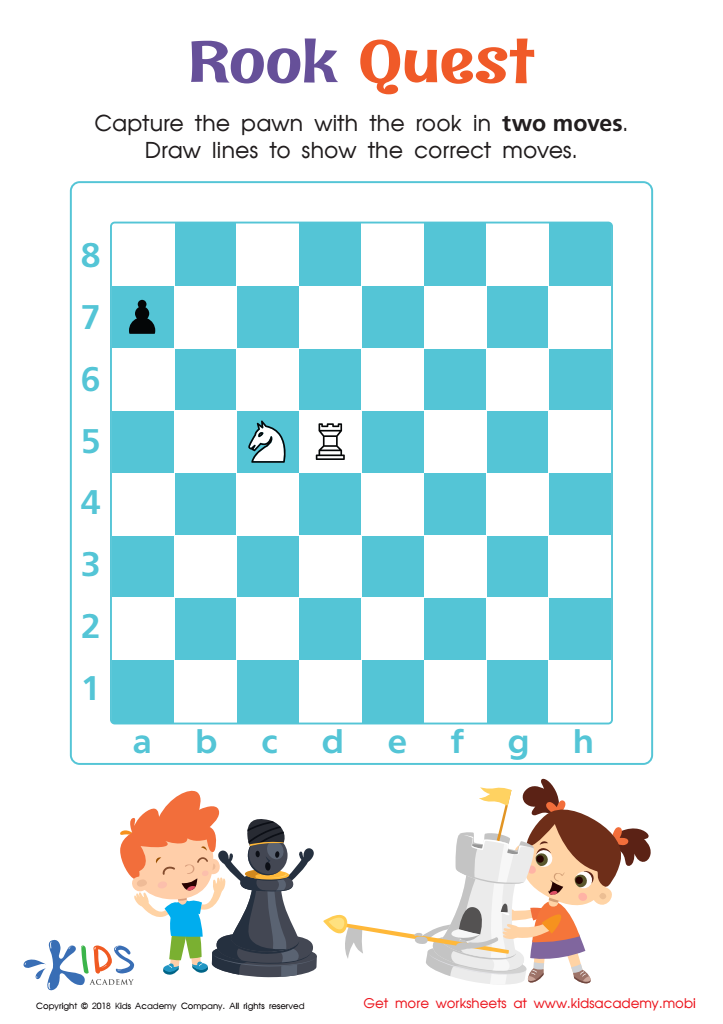

Rook Quest Worksheet
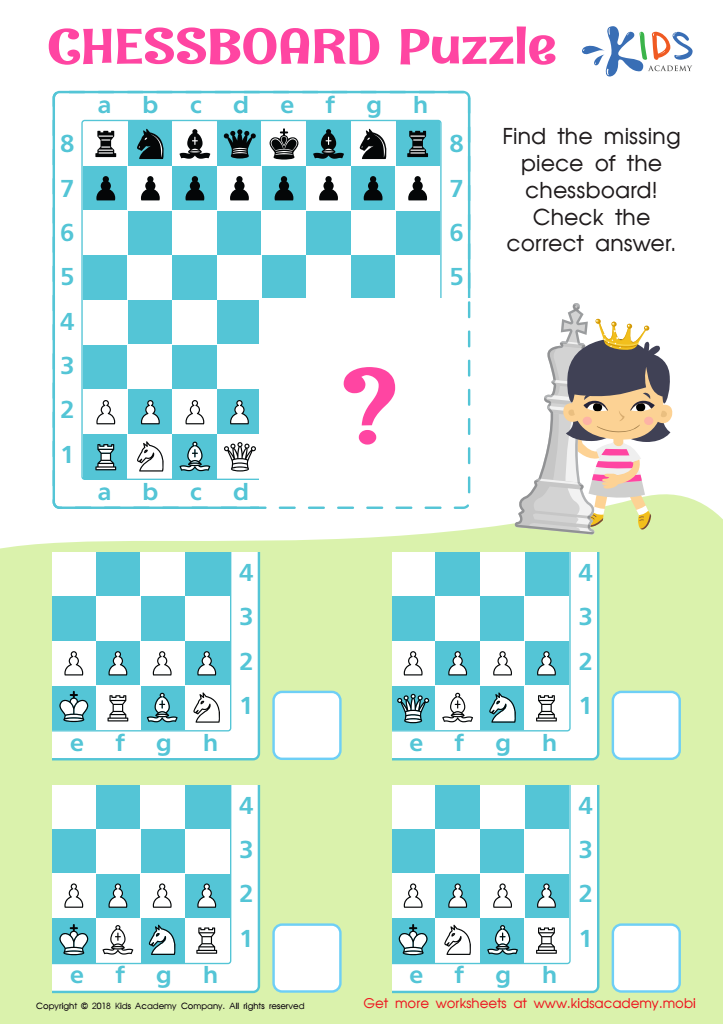

Chessboard Puzzle Worksheet
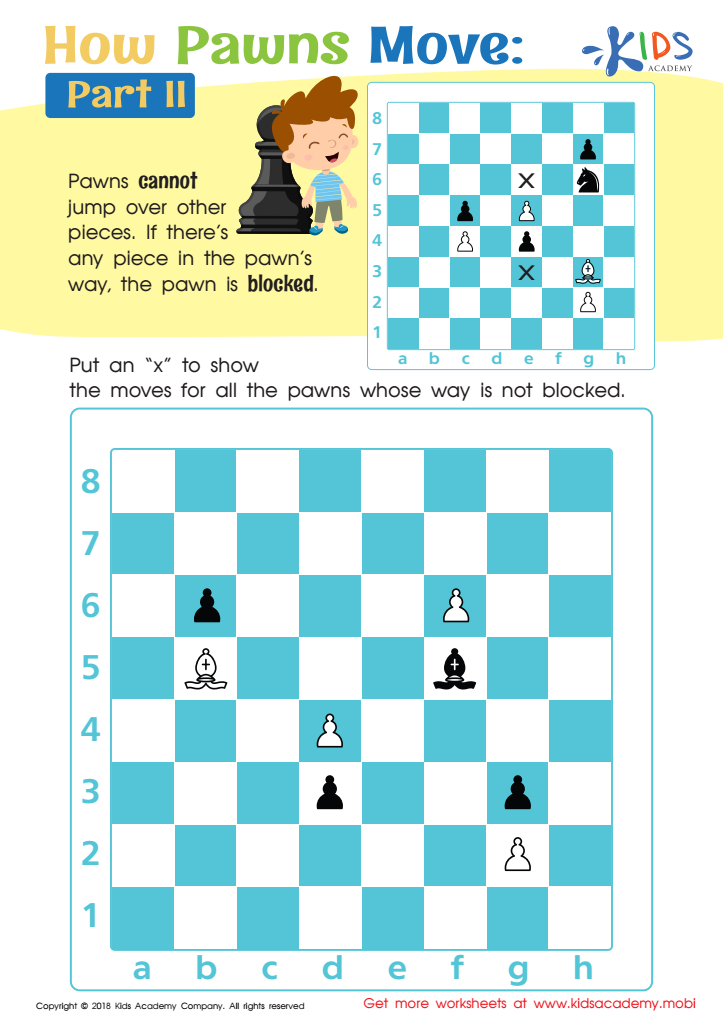

How Pawns Move: Part II Worksheet
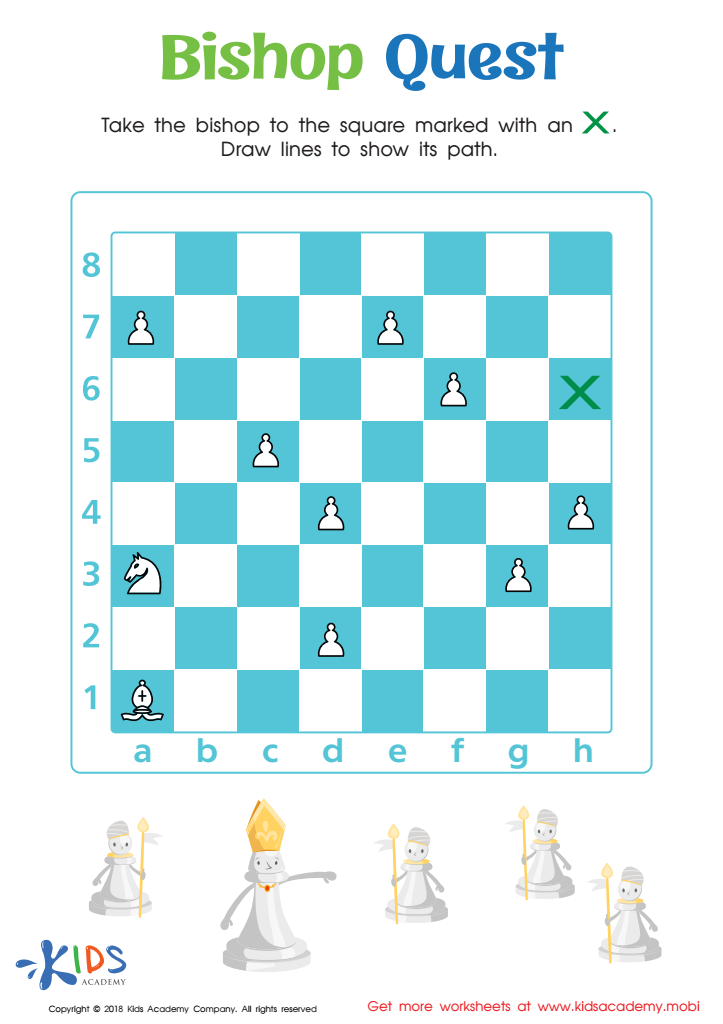

Bishop Quest Worksheet
Parents and teachers should care about integrating problem-solving skills through chess for children aged 7-8 because it profoundly nurtures cognitive development and life skills critical for future success. At this age, kids are naturally curious and malleable, making it an ideal time to introduce them to activities that stimulate critical thinking, enhance concentration, and develop patience.
Chess, being a game of strategic depth, encourages children to think several steps ahead, plan their moves, and anticipate their opponent’s actions. This form of problem-solving boosts analytical skills and fosters a mindset geared toward gradual, methodical thinking. Additionally, chess teaches children the value of patience as they learn to wait for the right moment to execute their strategy, further building self-discipline and delayed gratification.
Moreover, engaging in chess boosts memory, as kids need to remember complex positions and plan strategies over time. It also develops their ability to assess situations and make decisions under pressure, skills incredibly valuable both academically and later in life.
Furthermore, the social aspect of chess introduces them to healthy competition and sportsmanship, improving their interpersonal skills. Ultimately, problem-solving skills honed through chess prepare children to face challenges both in school and in everyday situations with confidence and resilience.
 Assign to My Students
Assign to My Students



